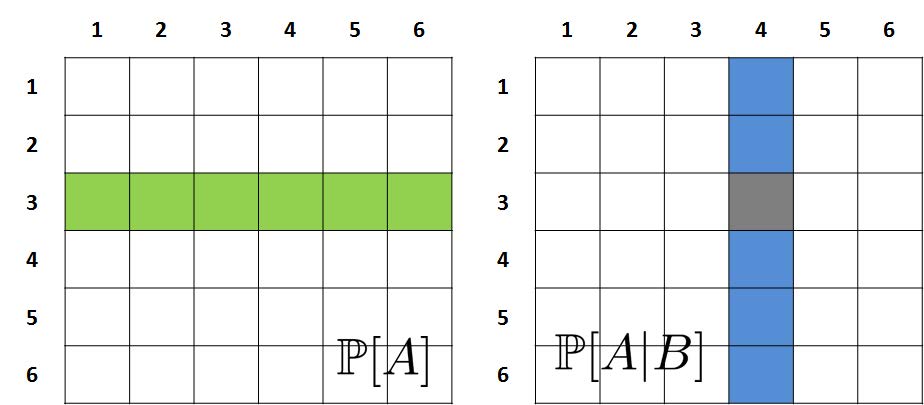Independance
Two events are independant if \(\mathbb{P}[A \mid B] = \mathbb{P}[A]\) or \(\mathbb{P}[B \mid A] = \mathbb{P}[B]\).
Using the definition of conditional probability, if \(\mathbb{P}[A] \geq 0\) and \(\mathbb{P}[B] \geq 0\) this is: \[ \frac{\mathbb{P}[A \cap B]}{\mathbb{P}[B]} = \mathbb{P}[A]\\ \text{or}\\ \mathbb{P}[A \cap B] =\mathbb{P}[B] \mathbb{P}[A] \] This last expression is often taken as the definition of independent events because it works when probabilities are zero as well. So probabilities for independent events can be multiplied.
Example: outcome of two dice rolls: \(A=\{\text{1st die is 3}\}\) and \(B= \{\text{2nd die is 4}\}\) .
\(\mathbb{P}[A] =\mathbb{P}[B] = 1/6\)
\(\mathbb{P}[A \cap B] = \mathbb{P}[(3,4)] = 1/36 = \mathbb{P}[A]\mathbb{P}[B]\)

Disjoint is not the same as Independant!